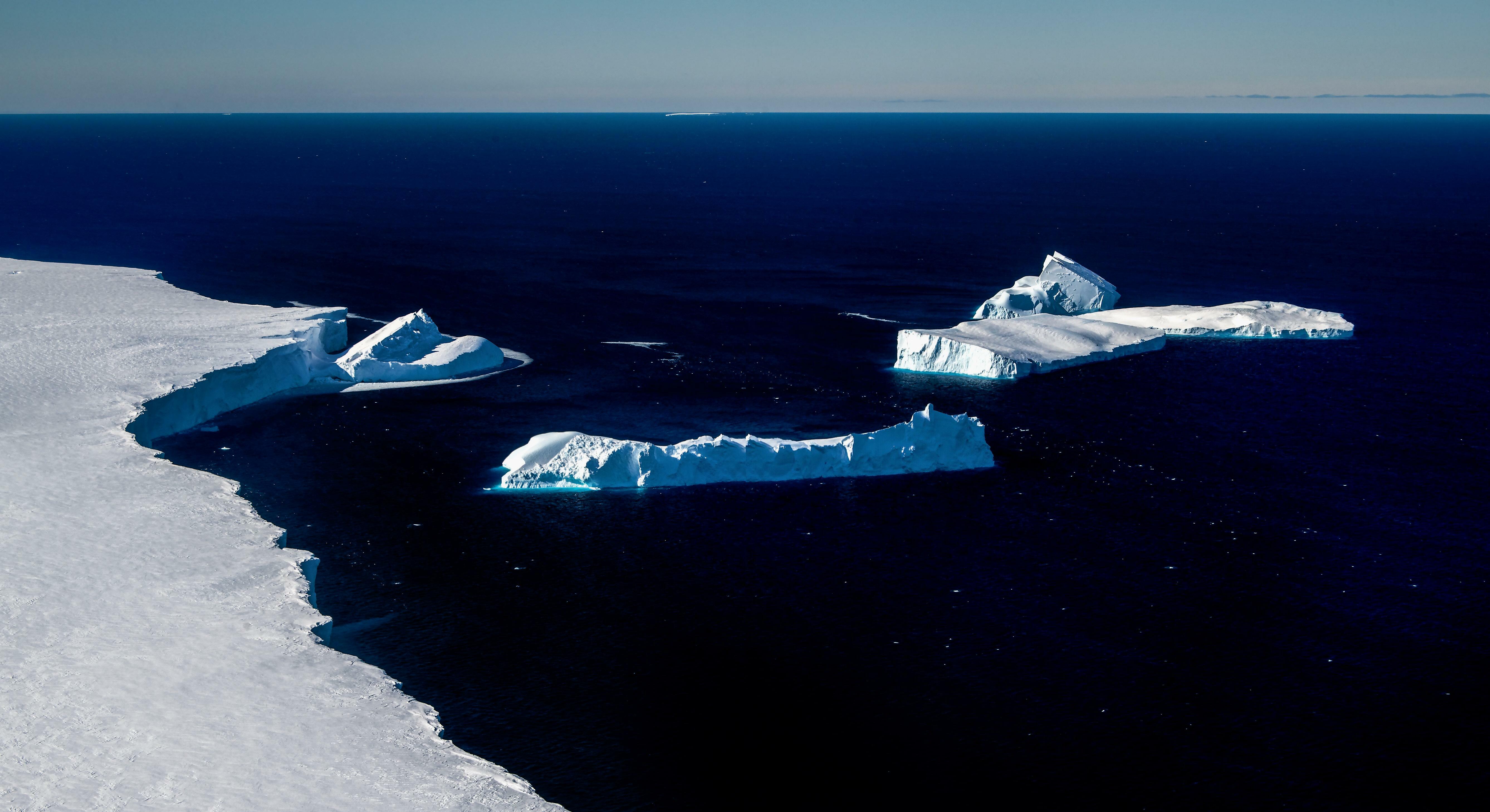
THE EDGE OF GREENLAND'S ICE SHEET looked like a big lick of sludgy white frosting spilling over a rise of billion-year-old brown rock. Inside the Twin Otter's cabin, there were five of us: two pilots, a scientist, an engineer, and me. Farther north, we would have needed another seat for a rifle-armed guard. Here, we were told to just look around for polar-bear tracks on our descent. We had taken off from Greenland's west coast and soon passed over the ice sheet's lip. Viewed from directly above, the first 10 miles of ice looked wrinkled, like elephant skin. Its folds and creases appeared to be lit blue from within.
We landed 80 miles into the interior with a swervy skid. Our engineer, a burly Frenchman named Nicolas Bayou, jerked the door open, and an unearthly cold ripped through the cabin. The ice was smoother here. The May sunlight radiated off it like a pure-white aurora. We knew that there were no large crevasses near the landing site. This was a NASA mission. We had orbital reconnaissance. Still, our safety officer had warned us that we could "pop down" into a hidden crack in the ice if we ventured too far from the plane. Bayou appointed himself our Neil Armstrong. He unfolded the ladder, stepped gingerly down its rungs, and set foot on the surface.
Over the next hour and a half, we drilled 15 feet into the mile-thick ice. We fed a long pole topped by a solar-powered GPS receiver into the hole and stood it straight up. In the ensuing days, we were scheduled to set up four identical sites in a long line, the last one near Greenland's center. Each will help calibrate a $1.5 billion satellite, known as NISAR, that NASA has been building with the Indian Space Research Organisation. After the satellite launches from the Bay of Bengal, its radar will peer down at Earth's glaciers-even at night, even in stormy weather. Every 12 days, it will generate an exquisitely detailed image of almost the entirety of the cryosphere-all the planet's ice.
Denne historien er fra July - August 2024-utgaven av The Atlantic.
Start din 7-dagers gratis prøveperiode på Magzter GOLD for å få tilgang til tusenvis av utvalgte premiumhistorier og 9000+ magasiner og aviser.
Allerede abonnent ? Logg på
Denne historien er fra July - August 2024-utgaven av The Atlantic.
Start din 7-dagers gratis prøveperiode på Magzter GOLD for å få tilgang til tusenvis av utvalgte premiumhistorier og 9000+ magasiner og aviser.
Allerede abonnent? Logg på

JOE ROGAN IS THE MAINSTREAM MEDIA NOW
What happens when the outsiders seize the microphone?

MARAUDING NATION
In Trumps second term, the U.S. could become a global bully.

BOLEY RIDES AGAIN
America’s oldest Black rodeo is back.

THE GENDER WAR IS HERE
What women learned in 2024

THE END OF DEMOCRATIC DELUSIONS
The Trump Reaction and what comes next

The Longevity Revolution
We need to radically rethink what it means to be old.

Bob Dylan's Carnival Act
His identity was a performance. His writing was sleight of hand. He bamboozled his own audience.

I'm a Pizza Sicko
My quest to make the perfect pie

What Happens When You Lose Your Country?
In 1893, a U.S.-backed coup destroyed Hawai'i's sovereign government. Some Hawaiians want their nation back.

The Fraudulent Science of Success
Business schools are in the grips of a scandal that threatens to undermine their most influential research-and the credibility of an entire field.